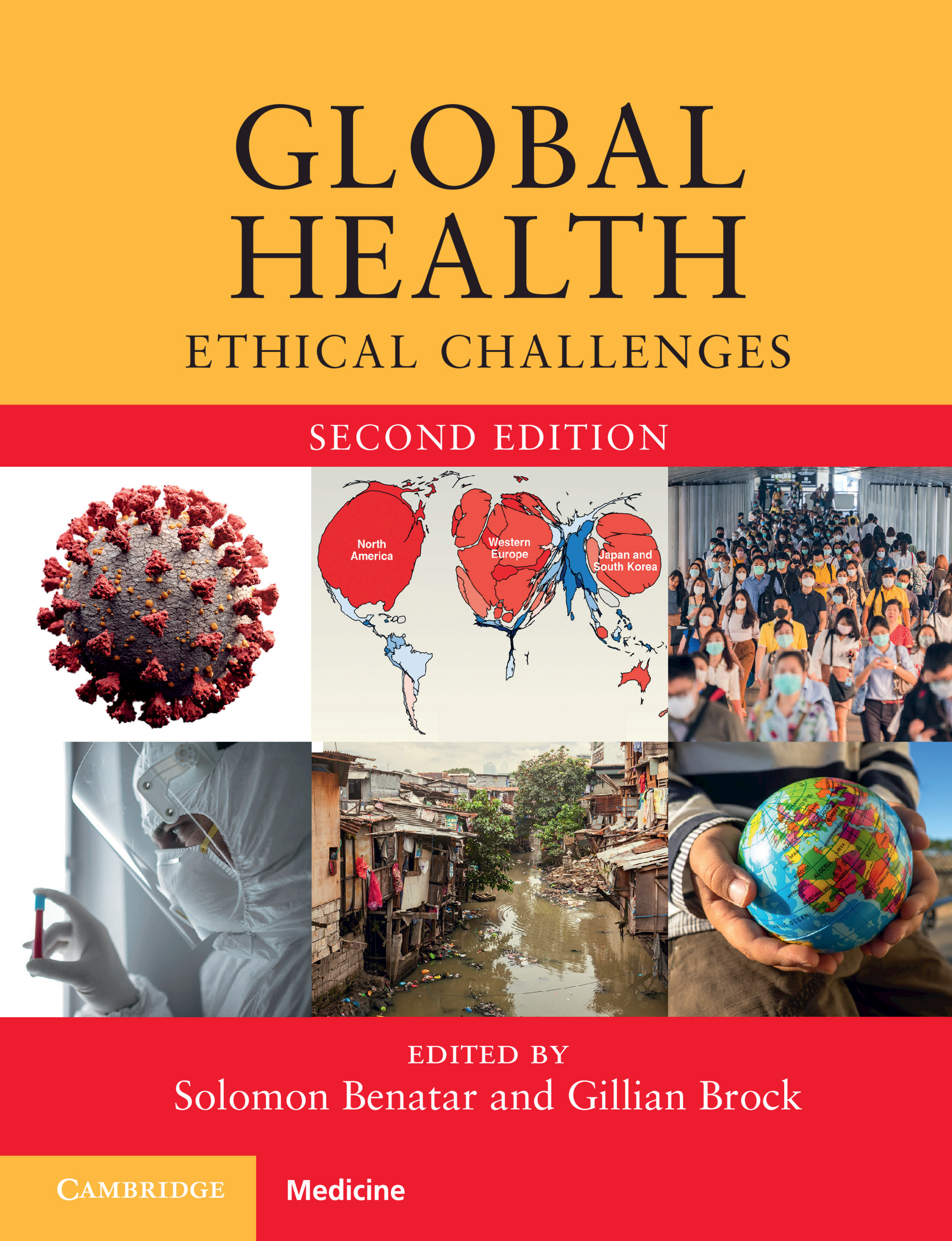Book contents
- Global Health
- Global Health
- Copyright page
- Contents
- Contributors
- Introduction
- Section 1 Global Health: Definitions and Descriptions
- Section 2 Global Health Ethics, Responsibilities, and Justice: Some Central Issues
- Section 3 Analyzing Some Reasons for Poor Health and Responsibilities to Address Them
- Section 4 Environmental/Ecological Considerations and Planetary Health
- Section 5 The Importance of Including Cross-Cultural Perspectives and the Need for Dialogue
- Section 6 Shaping the Future
- Chapter 29 Global Health Research
- Chapter 30 Justice and Research in Developing Countries
- Chapter 31 The Health Impact Fund
- Chapter 32 Evaluating Global Health Impact and Increasing Access to Essential Medicines
- Chapter 33 Philanthrocapitalism and Global Health
- Chapter 34 Big Data and Artificial Intelligence for Global Health
- Chapter 35 Global Health Governance for Developing Sustainability
- Chapter 36 Teaching Global Health Ethics
- Chapter 37 Teaching Global Health Ethics
- Chapter 38 Toward a New Common Sense
- Index
- References
Chapter 30 - Justice and Research in Developing Countries
from Section 6 - Shaping the Future
Published online by Cambridge University Press: 04 February 2021
- Global Health
- Global Health
- Copyright page
- Contents
- Contributors
- Introduction
- Section 1 Global Health: Definitions and Descriptions
- Section 2 Global Health Ethics, Responsibilities, and Justice: Some Central Issues
- Section 3 Analyzing Some Reasons for Poor Health and Responsibilities to Address Them
- Section 4 Environmental/Ecological Considerations and Planetary Health
- Section 5 The Importance of Including Cross-Cultural Perspectives and the Need for Dialogue
- Section 6 Shaping the Future
- Chapter 29 Global Health Research
- Chapter 30 Justice and Research in Developing Countries
- Chapter 31 The Health Impact Fund
- Chapter 32 Evaluating Global Health Impact and Increasing Access to Essential Medicines
- Chapter 33 Philanthrocapitalism and Global Health
- Chapter 34 Big Data and Artificial Intelligence for Global Health
- Chapter 35 Global Health Governance for Developing Sustainability
- Chapter 36 Teaching Global Health Ethics
- Chapter 37 Teaching Global Health Ethics
- Chapter 38 Toward a New Common Sense
- Index
- References
Summary
Clinical research is a morally complex activity. When properly conducted, it represents a powerful tool for generating information and knowledge that often cannot be obtained by other means. When properly oriented, this knowledge represents the key to advancing the standard of care and creating the policies, practices, and interventions that can be used to improve the health of large populations of people.
- Type
- Chapter
- Information
- Global HealthEthical Challenges, pp. 383 - 393Publisher: Cambridge University PressPrint publication year: 2021

